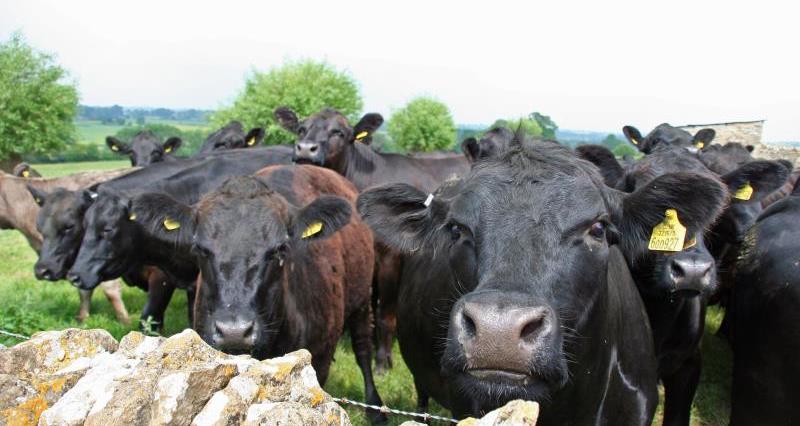When I look over the Norfolk land my family has farmed for decades, in the heart of the breadbasket of England, I see a farm that has helped to feed the nation for centuries. Whether it’s the wheat for your bread, the beef for your Sunday roast, the sugar for your cakes, the potatoes for your chips, or the peas that your mum used to make you eat as a kid, we produce it all.
It’s land that has been shaped by generations of farming. Families like mine are typical across the country. My parents, my brother and I take great pride in how we look after the countryside and we want to make sure we leave it in a better condition for generations to come after us.
British farmers all share this same ethos. We all pride ourselves on producing food for the millions, while working hand-in-hand with the environment.
Today is Back British Farming day, a time to celebrate the nation’s farmers and the food they produce. A time to celebrate the high standards we produce to and to reflect on the values we uphold.
British farmers lead the world in our animal welfare standards and it’s the same on my farm. High welfare is built into everything we do. A healthy cow is a happy cow.
Our cattle are grazed outdoors most of the year, except for a month or two in the spring when we bring them in for calving. They’re such an important part of our farm, particularly for our arable crops.
Not only do they turn inedible grass into tasty, nutritious and sustainable beef, they also help to build soil fertility and enhance our soil structure and biodiversity. Our soil organic matter has increased by 4% over the past few years, and grazing cattle has been a key part of that.
This just goes to show what farmers are capable of in this country. It also shows what we have to lose. I firmly believe all that British farming has delivered for the nation over centuries could be lost in as little as five years if we get new post-Brexit trade deals or agricultural policy wrong.
You hear a lot about a trade deal with the USA and the prospect of hormone-fed beef being imported. I know the prospect worries shoppers, and it worries farmers too. That beef would be illegal to produce here and would undermine the beef I produce.
This would be a tragedy not just for me, my family and farming business, and everything British farmers have worked hard to build, but also for the public and the potential narrowing of consumer choice.
And it would jeopardise all the work we do for the environment. In the past five years, I’ve planted nearly three kilometres of hedges on the farm and hundreds of trees. I’ve seen partridges flourish on the farm as a result and we’ve won regional awards for their wild numbers on the farm. But if I have to downsize, I might not be able to continue that environmental work. And if I don’t, who will?
A farmed environment is a delicate thing. If you disrupt one thing, it has knock-on effects for another. It’s a big reason why I love to farm, but it’s also what makes it so fragile and vulnerable to volatility.
Back British Farming Day is about reminding politicians of the need to understand that and value the sustainable food production that we have in this country. We should be setting the standard around the world, not undermining it just to get a trade deal.
Farmers want to continue producing climate-friendly food and we want to continue making our farms a better place for wildlife and birds. The government needs to put their faith and trust in British farmers to continue our world-leading standards, and build on them to go even further.
So if you’re tucking into a nice piece of British beef for dinner or out for a walk in the Fens, show your support on social media today by using #BackBritishFarming and celebrate the farmers who help to produce your food, all while caring for the cherished countryside we all enjoy.
